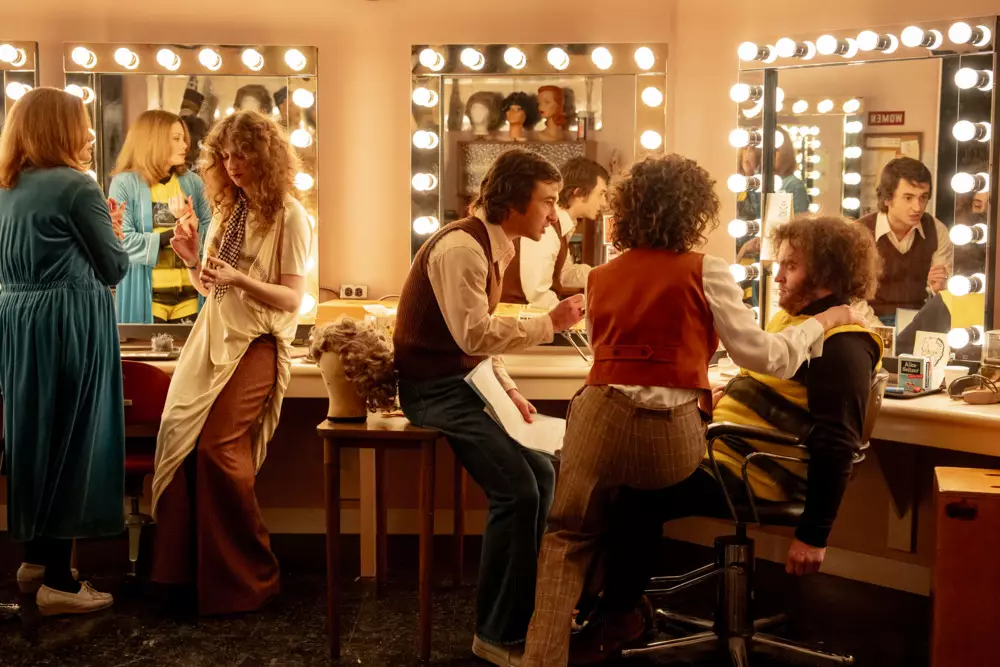The film industry is constantly evolving, and every so often, a project emerges that resonates deeply with audiences and critics alike. Jason Reitman’s upcoming release, “Saturday Night,” vividly encapsulates the vibrant yet chaotic environment that birthed one of television’s most iconic shows, “Saturday Night Live” (SNL). Set to grace theaters on October 11, coinciding with SNL’s 50th anniversary, the film delves into an era defined by creativity, innovation, and the relentless pursuit of comedic excellence.
In an intriguing pivot reflective of audience demand and critical reception, Sony has opted for a strategic platform rollout for “Saturday Night.” After garnering enthusiastic reviews following its Telluride premiere, the film will first debut exclusively in major urban centers such as Los Angeles, New York City, and Toronto on September 27, before transitioning to a limited release on October 4 and then expanding wide on October 11. This deliberate strategy not only heightens anticipation but also allows for organic word-of-mouth promotion, a tactic increasingly embraced in modern distribution models.
One of the most compelling aspects of “Saturday Night” is its impressive ensemble cast, featuring talents like Gabriel LaBelle embodying the legendary SNL producer Lorne Michaels and Dyan O’Brien as Dan Aykroyd. The casting choices exhibit a keen understanding of character nuances; for instance, Willem Dafoe’s portrayal of NBC executive David Tebet is poised to resonate deeply given his storied career and ability to straddle both serious and comedic roles. Critics have already noted that LaBelle captures the essence of Michaels, shedding light on the man behind SNL’s inception and his vision for the show. The anticipation for performances that are not only comedic but also layered with emotional depth is palpable.
Critics are already heralding “Saturday Night” as a multi-faceted triumph, blending elements of comedy and suspense. Pete Hammond of Deadline emphasizes that Reitman has successfully crafted a narrative steeped in the unpredictability of live television. The film tackles the inherent tension of a production that must go live every week, capturing the creative brilliance and squad dynamics that characterize the SNL experience. Hammond’s assertion that “one false move” could have derailed the film echoes the high stakes associated with the original show, making viewers keenly aware of the risks involved in live performances.
Intriguingly, “Saturday Night” follows the 90 minutes leading up to SNL’s monumental first broadcast. This behind-the-scenes perspective is illuminating, illustrating not only the logistical challenges faced by the diverse cast and crew but also the energy and spontaneity that define the spirit of late-night television. With its meticulous attention to detail, the film promises to blend humor and pathos, portraying the personal stories intertwined with the making of this cultural phenomenon. Through the lens of those involved, we perceive the collaborative essence of comedy—its highs, lows, and lifelong impacts.
“Saturday Night” represents more than just a nostalgic recounting of a cultural milestone. It is poised to reignite public interest in the figures who helped shape modern comedy, offering fresh appreciation for their contributions while capturing the essence of that chaotic, creative energy that continues to inspire new generations. As the film gears up for its release, it invites viewers not only to laugh but also to reflect on the complex tapestry of creativity that birthed comedy’s most enduring legacy. Whether you are a die-hard SNL fan or a curious observer, “Saturday Night” promises to deliver a captivating cinematic experience both funny and profound.

